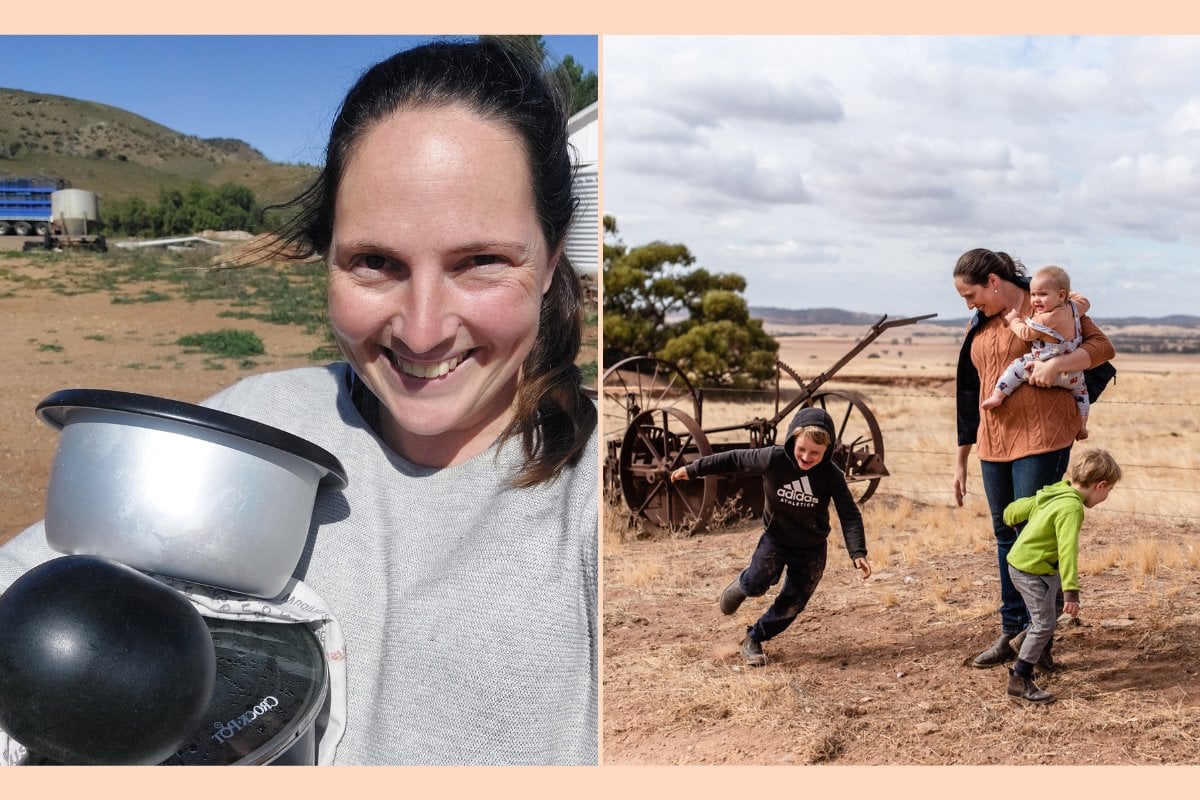
Sixteen years ago, I met my farmer. I was a city girl working at the institution that is ‘The Woolshed’ in Adelaide, also known as “the country pub in the city”. It was pretty close to a real life Farmer Wants a Wife story.
In our first month of dating, he came to Adelaide every weekend, confidently telling me that "the best part of working for yourself is taking time off when you want to". It’s safe to say that the first month is probably the most time he has taken off work in our life together.
We had our share of romantic dates on the farm, working in the shearing shed together crutching sheep. My job was picking the dags out of the wool - which is literally pulling the sh*tty bits out - so I think that was my first test of whether or not I would cut it.
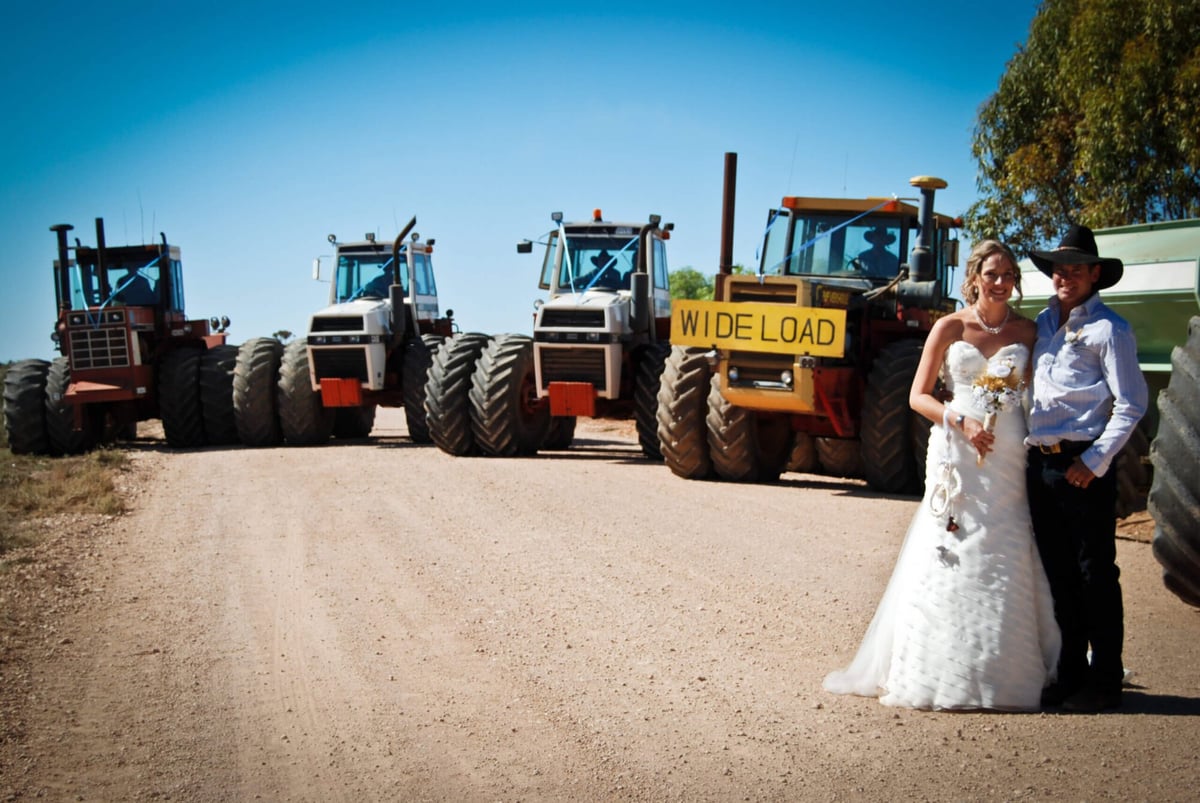 Stephanie on her wedding day. Image: Supplied.
Stephanie on her wedding day. Image: Supplied.

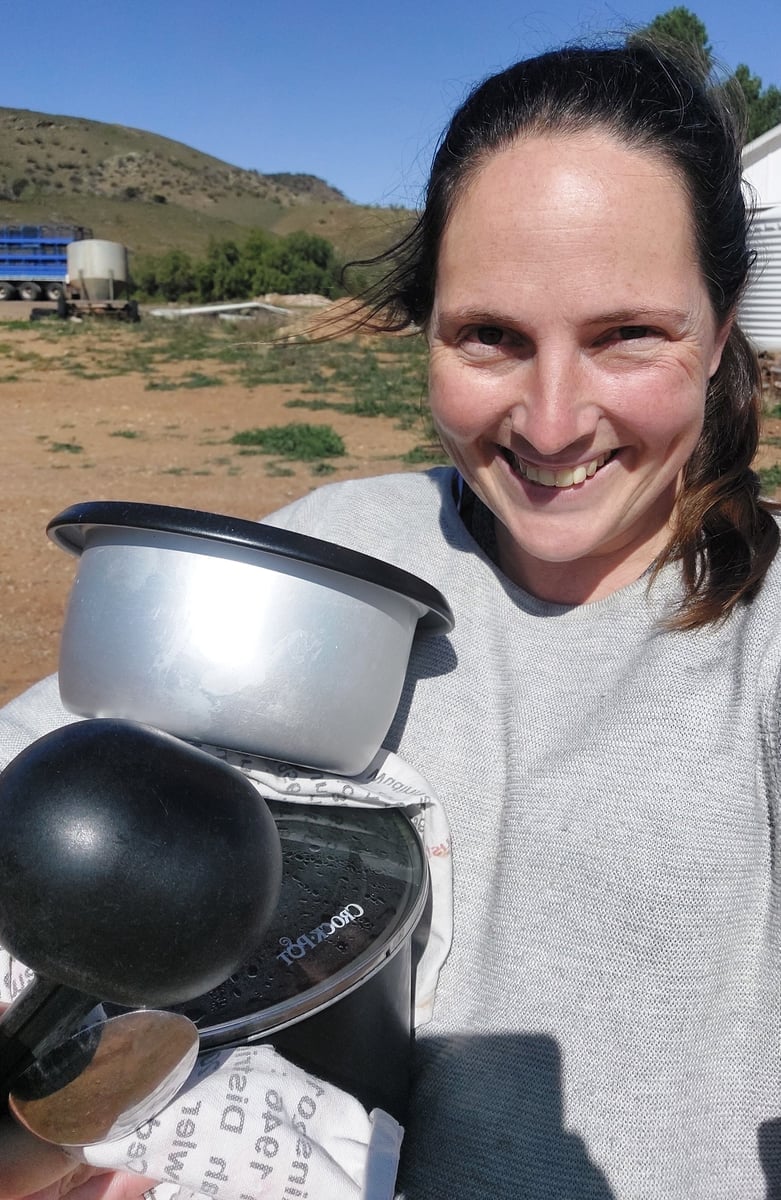
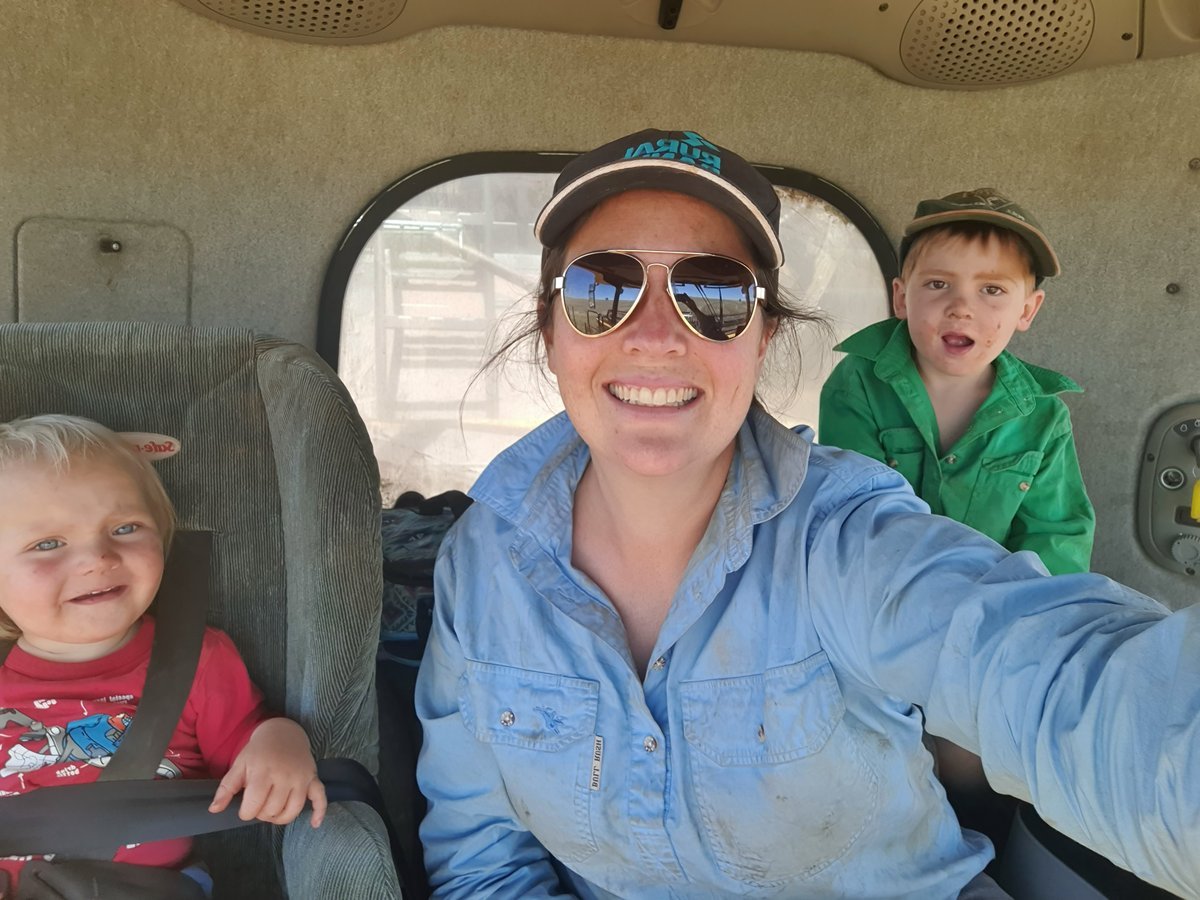
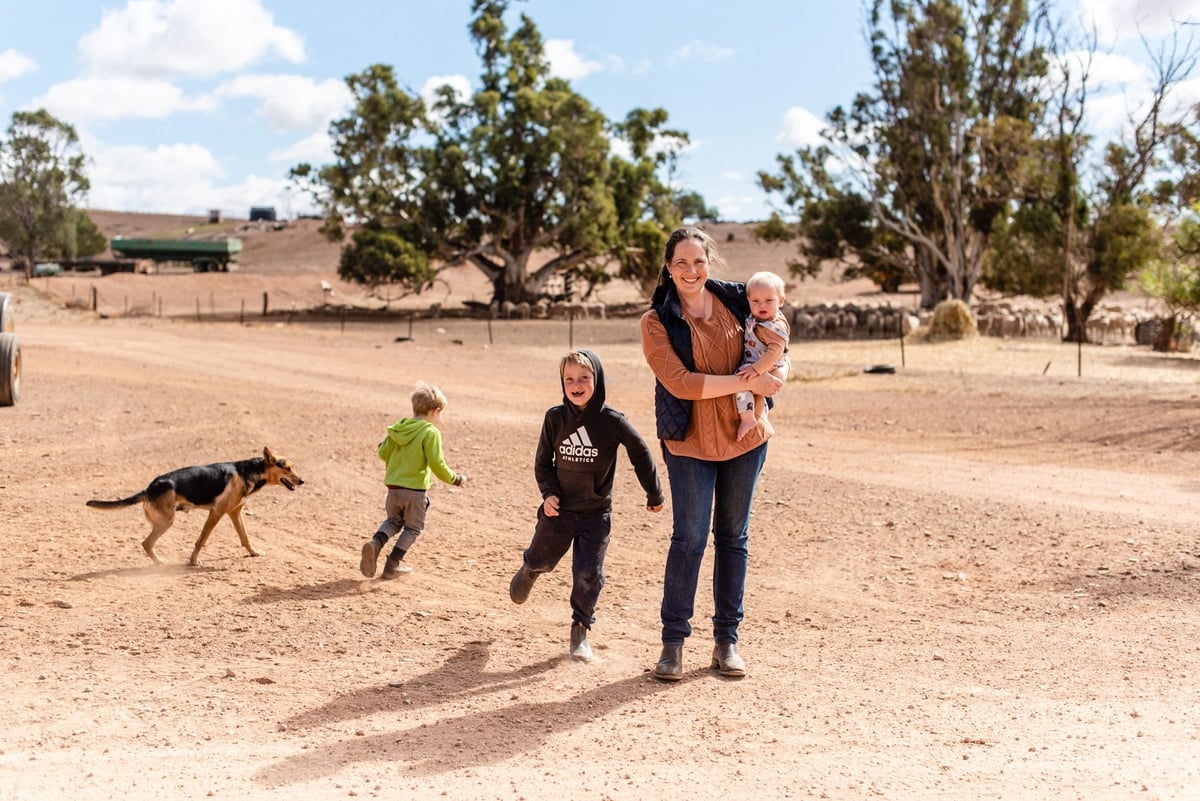
Top Comments